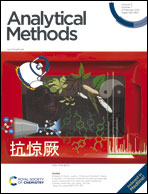The emerging role of 3D-printing in ion mobility spectrometry and mass spectrometry
Abstract
3D-printing is revolutionizing the rapid prototyping in analytical chemistry. In the last few years, we observed the development of 3D-printed components for ion studies, such as ion sources, ion transfer and ion mobility spectrometry (IMS) devices. Often, 3D-printed gadgets add functions to existing mass spectrometry (MS) systems. Custom adapters improve the sensibility for coupling with ambient ionization and upstream chromatography methods, and sample preparation units optimize the following MS analyses. Besides, 3D-printer parts are suitable for constructing custom analytical robots and mass imaging systems. Some of those assemblies implement new concepts and are commercially not available. An essential aspect of using 3D-printing is the fast turnover of design improvements, which is motivated by permissive licenses. The easy reproducibility and exchange of ideas lead to a community-driven development, which is accompanied by economic advantages for public research and education.

- This article is part of the themed collections: ENQA - 20th Brazilian Meeting on Analytical Chemistry and Analytical Methods HOT Articles 2021


 Please wait while we load your content...
Please wait while we load your content...